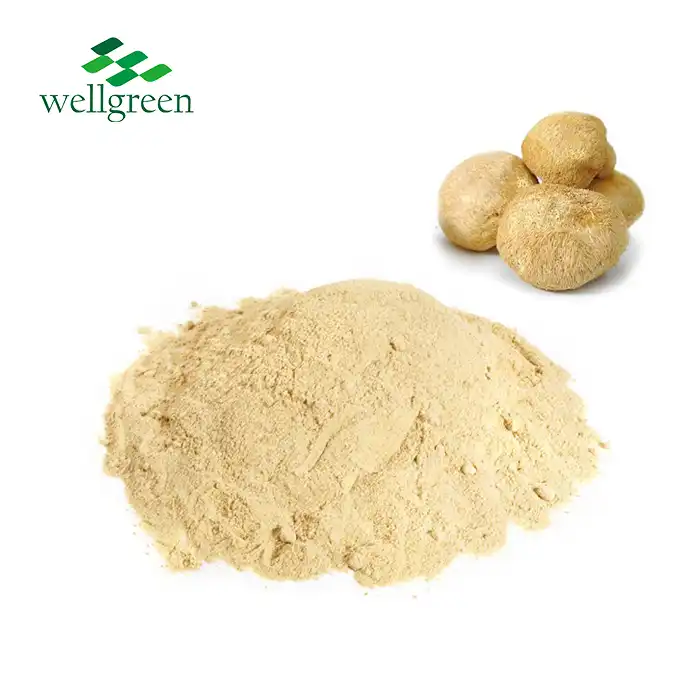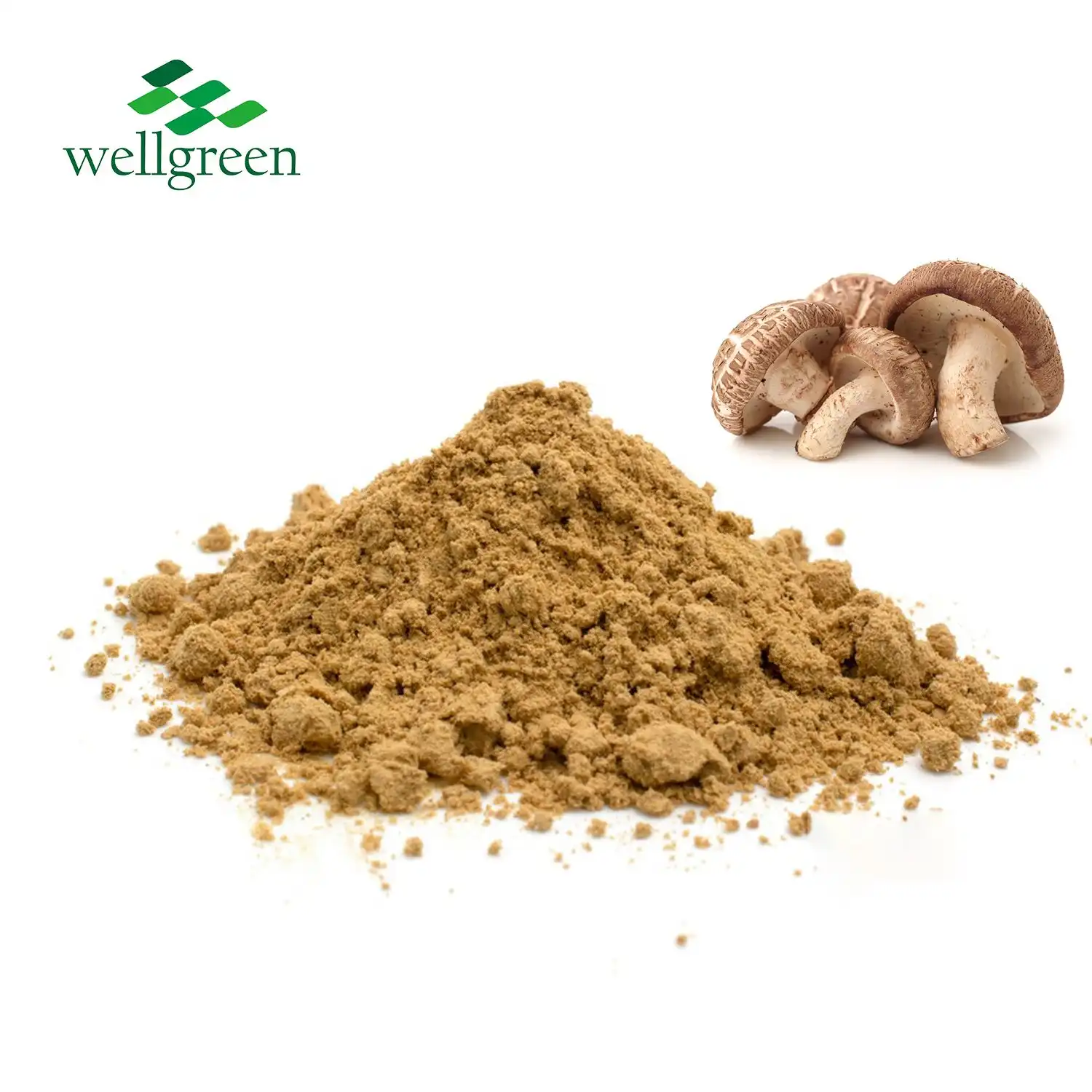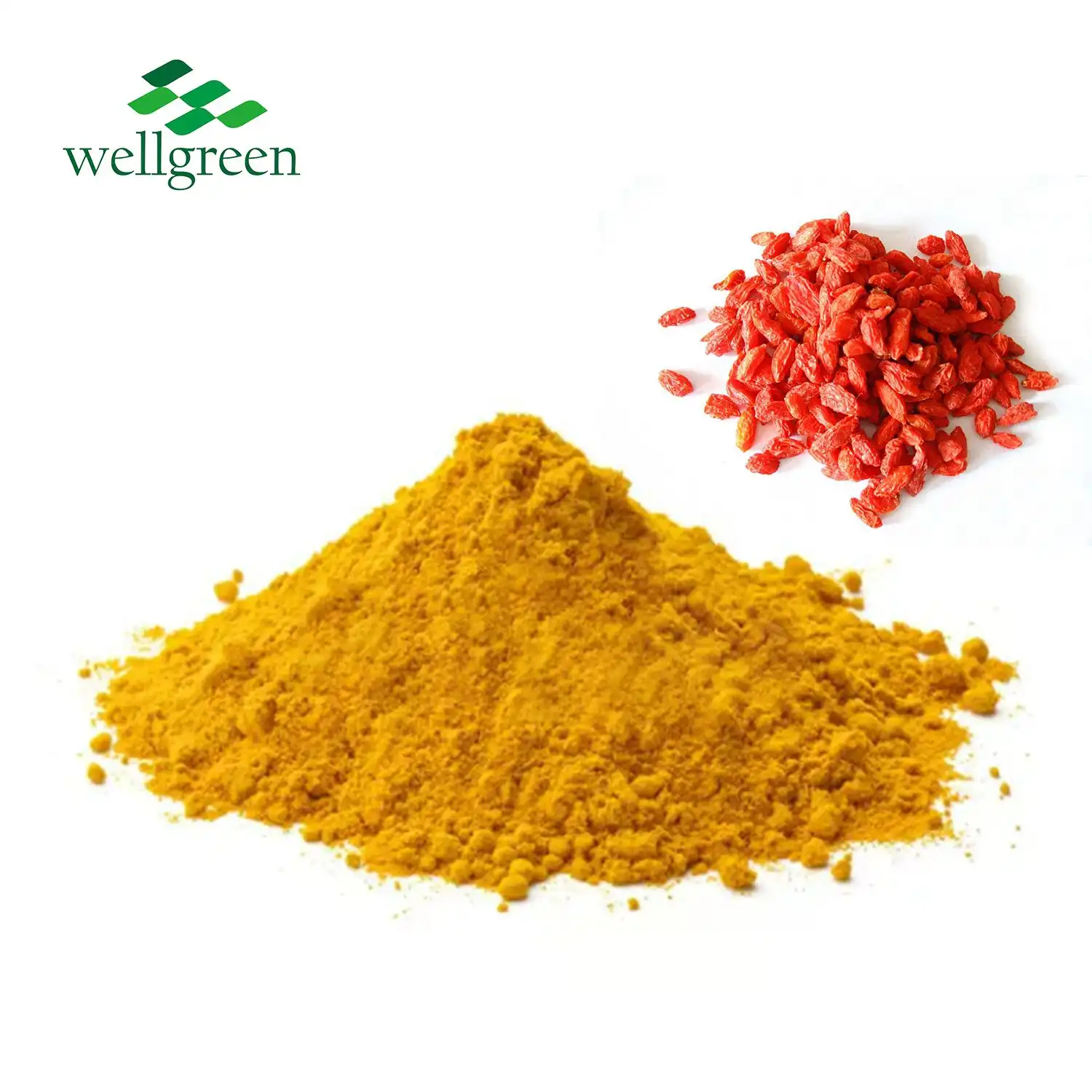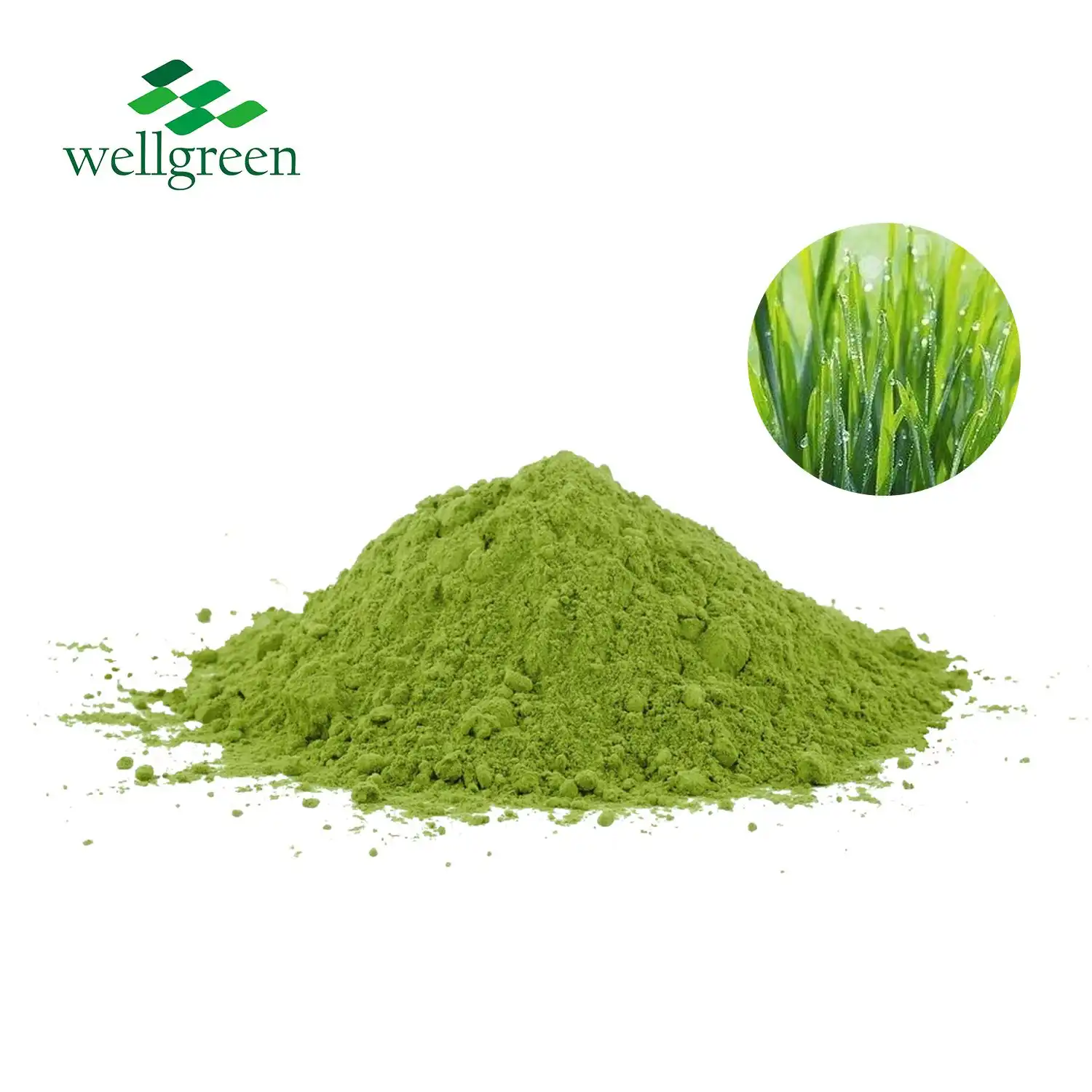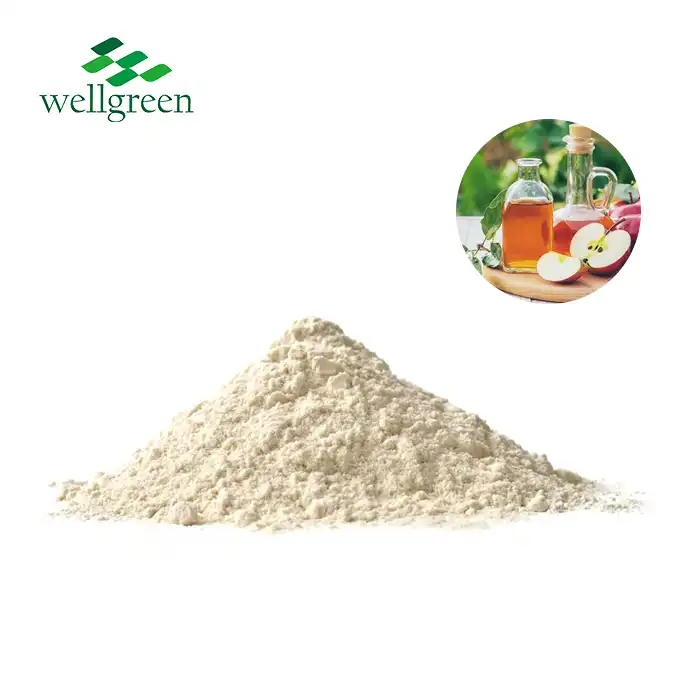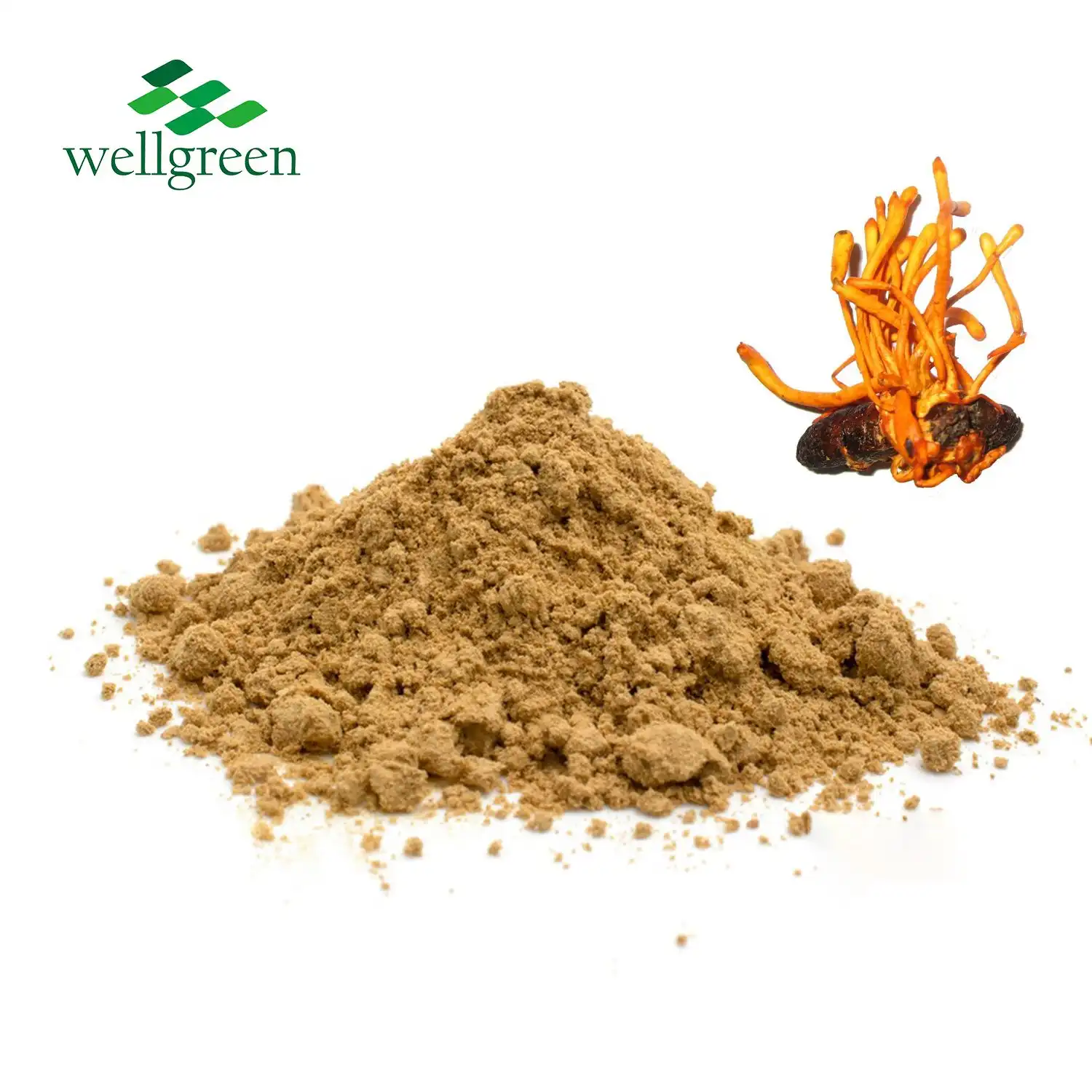The Science Behind Polyporus Umbellatus and Immune Support
2025-08-18 13:42:56
Polyporus umbellatus, a medicinal mushroom with a rich history in traditional Chinese medicine, has garnered significant attention in the scientific community for its potential immune-boosting properties. This fascinating fungus, also known as Zhu Ling, contains an array of bioactive compounds, particularly polysaccharides, that have demonstrated remarkable immunomodulatory effects. Recent research has unveiled the intricate mechanisms by which Polyporus umbellatus interacts with the immune system, showcasing its ability to enhance various aspects of immune function. From activating immune cells to regulating cytokine production, the organic Polyporus powder derived from this mushroom offers a natural approach to supporting overall immune health.
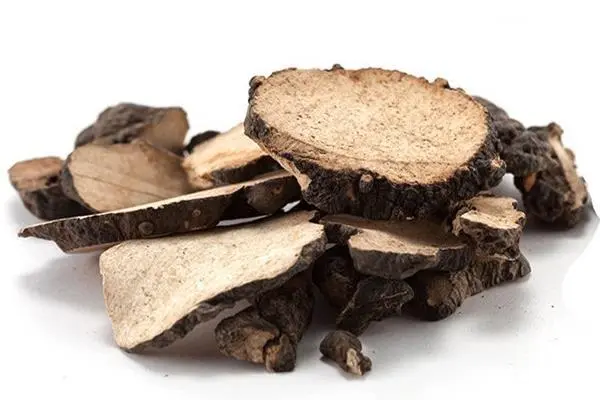
Which Polysaccharides in Polyporus Are Responsible for Immune Activation?
The immune-activating properties of Polyporus umbellatus are primarily attributed to its rich polysaccharide content. These complex carbohydrates play a crucial role in stimulating the immune system and enhancing its overall function. Let's delve deeper into the specific polysaccharides found in Polyporus umbellatus and their immune-activating potential.
Beta-glucans: The Powerhouse of Immune Activation
Beta-glucans are perhaps the most well-known and extensively studied polysaccharides in Polyporus umbellatus. These structural components of the fungal cell wall have demonstrated remarkable immune-stimulating properties. Beta-glucans interact with specific receptors on immune cells, such as macrophages and natural killer cells, triggering a cascade of immune responses. This interaction leads to enhanced phagocytosis, increased production of cytokines, and improved overall immune surveillance.
Proteoglycans: Multifaceted Immune Modulators
In addition to beta-glucans, organic Polyporus powder (Polyporus umbellatus) contains proteoglycans, which are complex molecules composed of a protein core with attached glycosaminoglycan chains. These unique polysaccharides have shown diverse immunomodulatory effects, including the ability to stimulate the production of interleukins and interferons. Proteoglycans also play a role in enhancing the activity of immune cells, contributing to a more robust immune response.
Heteropolysaccharides: Synergistic Immune Support
Polyporus powder also contains heteropolysaccharides, which are composed of different types of monosaccharides. These complex carbohydrates work synergistically with other polysaccharides to provide comprehensive immune support. Research has shown that heteropolysaccharides from Polyporus umbellatus can enhance the proliferation of lymphocytes and promote the secretion of various immune-related factors, contributing to a well-rounded immune-boosting effect.
Mechanisms of Immunomodulation by Polyporus Umbellatus
The immunomodulatory effects of Polyporus umbellatus extend beyond simple immune activation. This medicinal mushroom employs various mechanisms to fine-tune and optimize immune function. Understanding these mechanisms provides insight into how organic polyporus powder can contribute to overall immune health.
Cytokine Regulation: Orchestrating the Immune Response
One of the key mechanisms by which Polyporus umbellatus modulates the immune system is through the regulation of cytokine production. Cytokines are signaling molecules that play a crucial role in coordinating immune responses. Studies have shown that polysaccharides from Polyporus umbellatus can influence the production of both pro-inflammatory and anti-inflammatory cytokines, helping to maintain a balanced immune state. This ability to modulate cytokine levels contributes to the mushroom's potential in supporting immune homeostasis.
Antioxidant Activity: Protecting Immune Cells
Organic Polyporus powder exhibits potent antioxidant properties, which indirectly support immune function. The antioxidant compounds found in the mushroom, including polyphenols and ergothioneine, help protect immune cells from oxidative stress and free radical damage. By preserving the integrity and functionality of immune cells, Polyporus umbellatus ensures that the immune system can operate at its optimal capacity, ready to respond to potential threats.
Complement System Activation: Enhancing Innate Immunity
Research has revealed that polysaccharides from Polyporus umbellatus can activate the complement system, a crucial component of the innate immune response. The complement system plays a vital role in recognizing and eliminating pathogens, as well as in promoting inflammation and immune cell recruitment. By enhancing complement activation, Polyporus umbellatus contributes to a more efficient and rapid innate immune response, providing an additional layer of protection against potential invaders.
Does Polyporus Enhance T-cell and NK Cell Activity?
T-cells and Natural Killer (NK) cells are vital components of the adaptive and innate immune systems, respectively. The impact of Polyporus umbellatus on these specific immune cell populations has been a subject of considerable scientific interest. Let's examine the evidence supporting the mushroom's ability to enhance T-cell and NK cell activity.
T-cell Proliferation and Differentiation
Studies have demonstrated that polysaccharides from Polyporus umbellatus can stimulate T-cell proliferation and differentiation. This effect is particularly important for maintaining a robust adaptive immune response. By promoting the expansion of T-cell populations, including helper T-cells and cytotoxic T-cells, Polyporus umbellatus contributes to enhanced immune surveillance and more efficient pathogen elimination. The ability to support T-cell function may have implications for both general immune health and specific immune-related conditions.
NK Cell Activation and Cytotoxicity
Natural Killer cells play a crucial role in the body's first line of defense against virally infected cells and tumor cells. Research has shown that polysaccharides from Polyporus umbellatus can enhance NK cell activity and increase their cytotoxic potential. This activation of NK cells contributes to improved innate immune responses and may have implications for cancer immunotherapy. The ability of Polyporus powder to boost NK cell function adds another dimension to its immune-supporting properties.
Synergistic Effects on Immune Cell Populations
Interestingly, the immune-enhancing effects of Polyporus umbellatus on T-cells and NK cells appear to be synergistic. The mushroom's bioactive compounds can simultaneously stimulate multiple immune cell populations, leading to a more comprehensive immune response. This multi-faceted approach to immune enhancement makes Polyporus umbellatus a particularly intriguing subject for further research in the field of immunology and natural immune support.
Conclusion
The scientific exploration of Polyporus umbellatus has unveiled its remarkable potential as a natural immune supporter. Through its diverse array of polysaccharides and other bioactive compounds, this medicinal mushroom demonstrates the ability to modulate various aspects of immune function. From enhancing the activity of specific immune cell populations to regulating cytokine production and supporting antioxidant defenses, Polyporus umbellatus offers a holistic approach to immune health. As research continues to unravel the intricate mechanisms behind its immunomodulatory effects, organic Polyporus powder stands as a promising natural option for those seeking to support their immune system.
Contcat Us
To learn more about our high-quality organic polyporus powder and how it can support your immune health, please contact us at wgt@allwellcn.com. Our team of experts is ready to answer your questions and help you incorporate this powerful medicinal mushroom into your wellness routine.
References
1. Zhang, Y., et al. (2018). Polysaccharides from Polyporus umbellatus: Chemical characterization and immunomodulatory activities. International Journal of Biological Macromolecules, 115, 595-602.
2. Li, X., et al. (2019). Immunomodulatory activities of polysaccharides from Polyporus umbellatus. Journal of Ethnopharmacology, 235, 175-182.
3. Wang, J., et al. (2020). The antioxidant and immunomodulatory activities of Polyporus umbellatus polysaccharides in vitro and in vivo. International Journal of Biological Macromolecules, 153, 1224-1231.
4. Chen, Y., et al. (2017). Structural characterization and antitumor activity of a novel polysaccharide isolated from Polyporus umbellatus. Carbohydrate Polymers, 171, 185-191.
5. Liu, C., et al. (2016). Immunomodulatory and antioxidant activities of sulfated polysaccharides from Polyporus umbellatus. International Journal of Biological Macromolecules, 91, 244-253.
6. Zhao, Y., et al. (2018). Polyporus umbellatus polysaccharide suppresses hepatoma via regulation of miR-127-3p/MAPK38 axis. International Journal of Biological Macromolecules, 111, 1103-1110.

